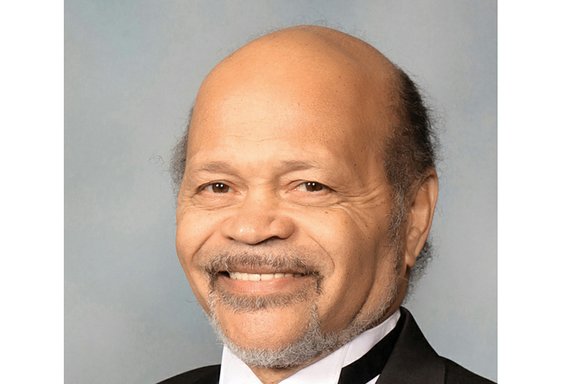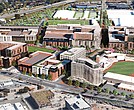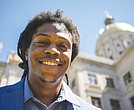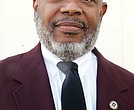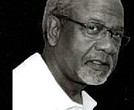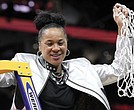Déjá vu
3/4/2016, 7:53 a.m.
Oscar H. Blayton
Now that the political pundits of the major media outlets have gulped down the teas that were the South Carolina Democratic primary and Super Tuesday, they are busy trying to read the leaves left in their respective cups.
One of the questions they are trying to fathom is: “Why are black voters splitting between Hillary Clinton and Bernie Sanders?”
Their amazement over this split reveals the ignorance that continues to shroud most of white America when it comes to issues of race.
The obvious fact they miss is that black America is not homogeneous. That truth would be abundantly clear if people of color were portrayed more often and more fairly by Hollywood and the television networks. But the most prevalent themes in which black folk are visible — black misery and white heroism — provide little opportunity to accurately depict anyone, black or white.
Throughout history there have been many political divisions within the black community. The most noted of these was the disagreement between W.E.B. DuBois and Booker T. Washington in the early 20th century.
Then, as now, African-Americans and other people of color were facing a surge of white intolerance. Jim Crow laws were being passed in the South, and in Northern industrial cities, black immigrants — fleeing Southern oppression — were despised and reviled for taking jobs away from white people.
Within this context, Dr. DuBois and Mr. Washington advocated two different approaches to the problem. Dr. DuBois saw the need for an elite class of black folks who could lead the rest of us on the path to full citizenship. He believed that, through the force of scholarship and the power of reasoning, the evils of racism could be overcome. Mr. Washington, on the other hand, wanted us to “cast down [our] buckets” where we were. He wanted us to work within the then current system, accept that white people believed in racial superiority, but demonstrate through hard work and upright character that we deserve a slice of the American Pie. (But let us not forget that women still were not allowed to vote at the time.)
The struggle then, as it is now, was viewed as one between “elites” and “accommodationists.”
Today, academics, writers and intellectuals within the African-American community appear to be lining up behind a candidate who often is described as a “socialist dreamer” from Vermont. But a closer look will reveal that they are not so much in favor of Bernie Sanders as they are opposed to a hostile system that has heaped countless disappointments on us while inflicting immeasurable harm.
In the other corner are the party faithful who take their cues from the established voices, no matter what. Their theme has been “we have to work within the system and go with the best that we find there. These black voters are staying with the heirs to the machinery that brought them “The War on Poverty,” JFK and FDR.
But in the early 20th century, as it is today, there was a third movement. One hundred years ago this month, a man who was despised and reviled, even by some members of the black community, stepped forward to give voice to those who were neither among the intellectuals nor working within the established political machinery of the day. That man was Marcus Garvey. He eventually was deported to Jamaica. But before he was, he lifted black folks with a sense of purpose and self-reliance that endured for more than a half century.
The third movement today is the Black Lives Matter movement. And like Mr. Garvey’s movement, Black Lives Matter advocates that black folks educate themselves as to what is in their own best interest.
This is not to say that Democratic Party loyalists rely too much on other people to tell them what to do. But when a group calling itself the “CBC-PAC,” with the implication that it is the “Congressional Black Caucus’ Political Action Committee,” endorses Hillary Clinton, people need to know that this is not the Congressional Black Caucus, but a group made up primarily of lobbyists.
This is not to say that when intellectuals present valid critiques of Hillary Clinton’s past participation in putting forward policies that decimated black communities and families they are saying they think Bernie Sanders is the solution to all black folks’ problems. Nor are they agreeing with the tone deaf young Sanders supporters who seem to be telling black voters that marching with Martin Luther King 50 years ago is the only qualification necessary for selecting a president. If marching with Dr. King was the only qualification necessary, thousands of black folks should be in the White House today.
We know some black folks get it very wrong sometimes. After all, there were those slaves who, out of a sense of loyalty, followed their Confederate masters into battle during the insurrection of certain Southern states. And there are those black supporters of Donald Trump who walk among us today. But the debate between the Clinton and Sanders supporters does not fall in that category. This is a close call within the black community; one that did not end when the polls closed on Super Tuesday.
One certain outcome of this contest, however, is that black intellectuals will not be put back into the box. The broader community now knows that they are here to stay. Going forward, everyone will know that black voices, like black lives, matter.
Another clear outcome of this contest is that black politicians who have nothing to offer their constituents, other than loyalty to the leadership of the Democratic Party, have outlived their usefulness, and a new breed of younger, smarter, more energetic black activists — soon to be politicians — is on the rise.
The writer is a former Marine Corps combat pilot and human rights activist who practices law in Virginia.
George Curry Media

